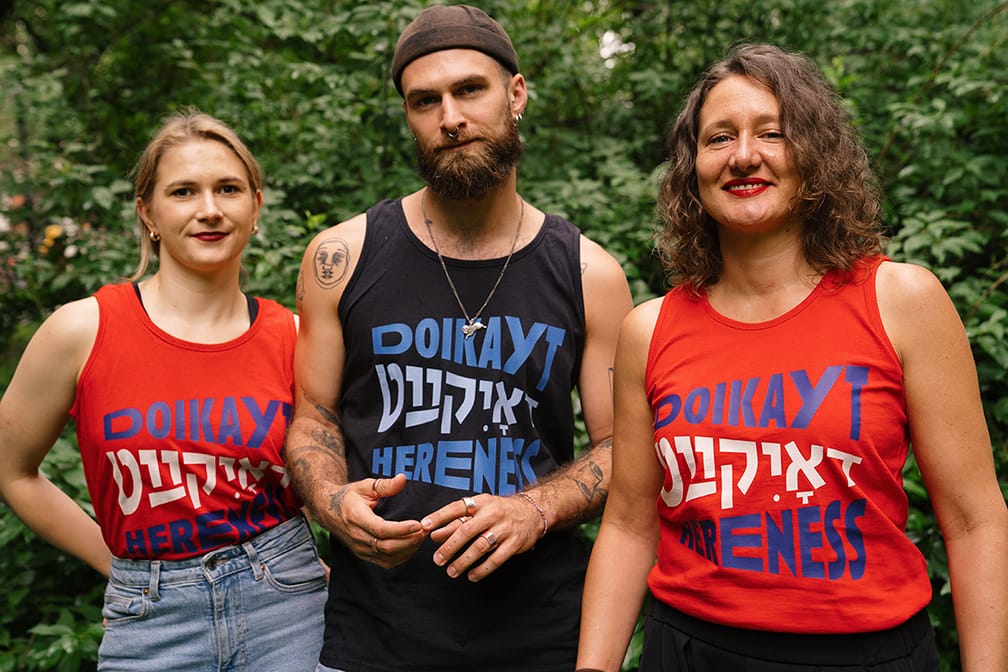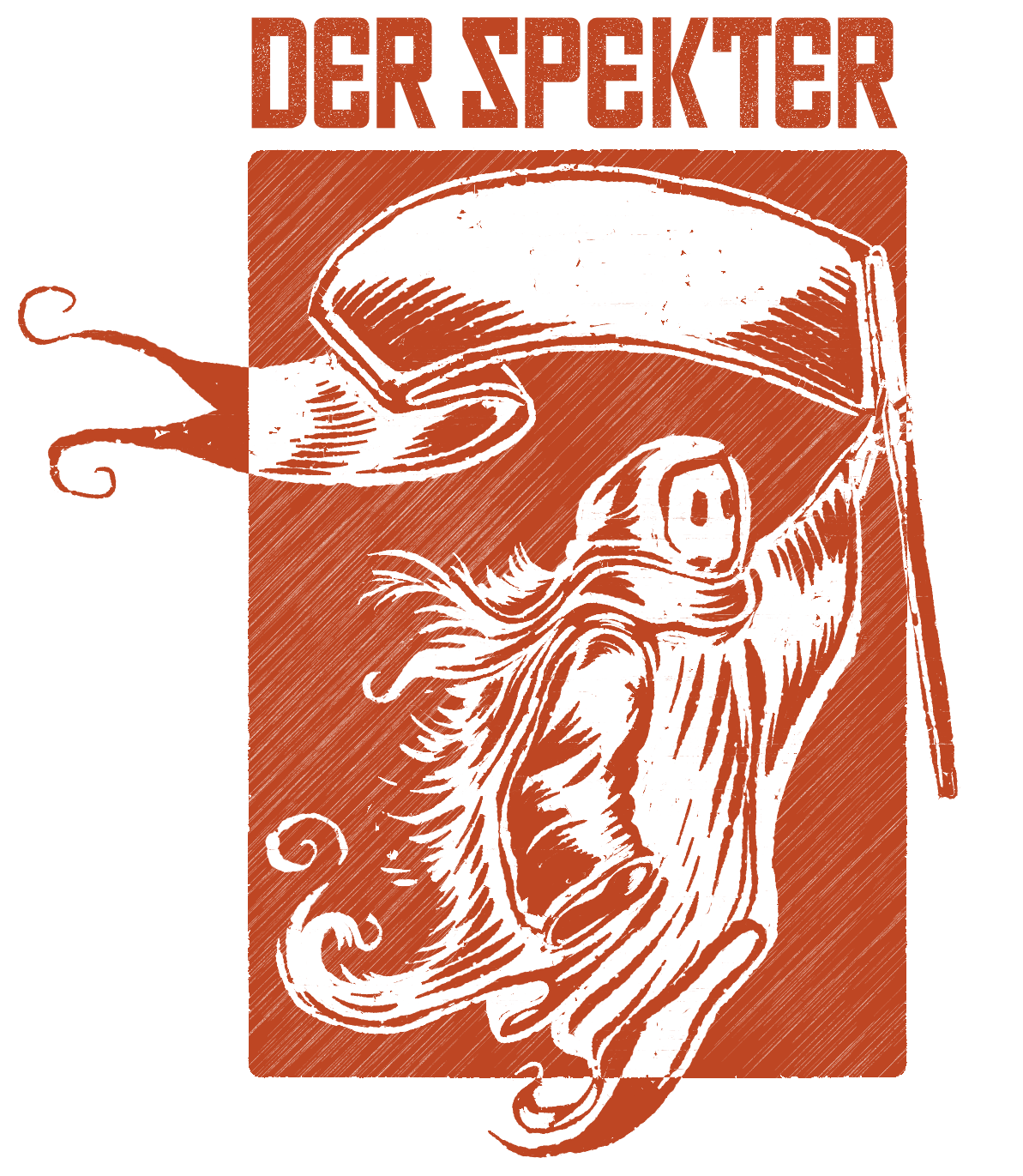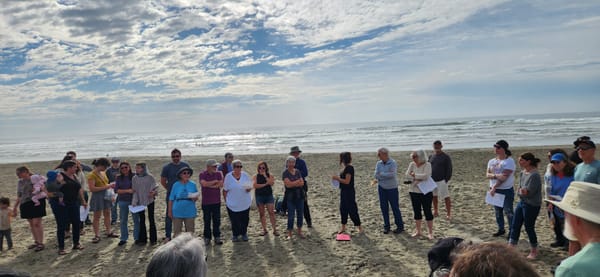Holy Names for Our Dybbuk
American Jewish artist Julie Weitz embodies the Yiddish folklore figure of the dybbuk to exorcise pain from sites of ancestral trauma.

What do the ghosts of history have to teach us about healing from the traumas of our future? This is a question I have asked myself since I arrived in Poland in early September 2023 as a U.S. Fulbright scholar. I came here to research the cultural history of the dybbuk folktale in Poland and develop a collaborative performance art project.
In Yiddish folklore tradition, the dybbuk is a wandering spirit that clings to a living body to communicate messages from the dead. During the interwar period in Poland, the dybbuk gained widespread attention after the folktale was adapted into a play by S. Anski and produced by multiple theaters in Warsaw. Two years before the Nazi occupation of Poland, the play was turned into a Yiddish-language film by Michal Waszynski, which is widely considered to be the most important Yiddish film ever made. "Der Dibuk" featured original choreography by Jewish performers Judith Berg and Felix Fibich, who fled Warsaw at the start of the Nazi occupation in 1939.
Almost a century later, I am picking up where these great Polish Jewish artists left off by returning to the lands of my ancestors to stage a collaborative performance art project inspired by the dybbuk. My work probes the potential for embodied performance art to activate concepts of diasporism and doikayt. Doikayt, meaning “hereness,” is a Yiddish organizing principle — popular in prewar Eastern Europe, it has re-emerged in the 21st century as a cultural and political framework for radical Jewish diasporism, standing in solidarity with global liberation movements, including Palestinian liberation.

Through my performance art practice, I animate figures from Yiddish folklore and use the interactions between figures and sites — especially those where Yiddish culture was all but eradicated — to explore themes of loss and healing through a diasporic lens. I engage with caricature, folklorism, and emplacement to historicize my work in relation to past, present, and future developments in Jewish culture.
On June 30th, I will premiere Holy Names for Our Dybbuk, a ritual performance of a dybbuk exorcism at the former site of a concentration camp in Kraków, Poland during the 8th annual FestivALT. I am working with an incredible ensemble of Polish dancers and the Polish choreographer Magdalena Przybysz to reimagine a dybbuk exorcism for our times, as a movement-based score and site-specific ritual. Embodying the dybbuk, I will become a channel for ancestral grief as an ensemble of dancers perform as the healers. Through rhythmic movement and chanting, we will create a somatic and symbolic ritual to exorcize ancestral trauma from both the body and the land.
Our plan is to transform the live performance into a mesmerizing, cinematic experience. While the project received early support from Fulbright and FestivALT, we are still fundraising to compensate our collaborators and professionally document the performance. With deep gratitude, I invite you to support our project with a tax-deductible donation in the following ways:
Donate directly, order a doikayt shirt or tank, designed in collaboration with Sam Fine, and available in black, red, and white, or order an archival, limited edition print from my dybbuk photographic series, including the photograph, Wherever We Live That's Our Homeland (Dybbuk in Jewish Cemetery, Tarnow, Poland).

If you would like to learn more about my project, join me on June 23rd for an hour-long workshop that delves into the Yiddish folktale of the dybbuk and introduces simple movement techniques inspired by Yiddish dance and Ashkenazi exorcism rituals. The event takes place on Zoom at 11 a.m. PST / 1 p.m. CST / 2 p.m. EST / 8 p.m. CET / 9 p.m. and a recording will be shared with those who register.
By embodying these Yiddish myths in Eastern Europe, their symbolic place of origin, my project transforms the cultural memories of genocide and displacement into reparative tools for healing in the present. Thank you in advance for your support.





